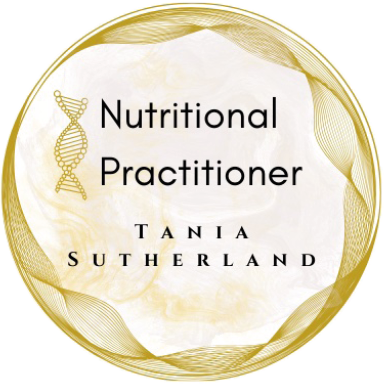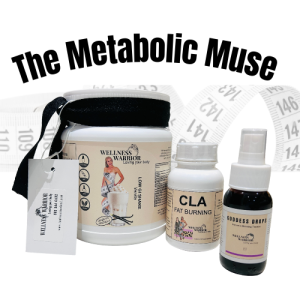-
×
 7 Day Exercise Plan -Rotate & Repeat for over 40+
1 × R195.00
7 Day Exercise Plan -Rotate & Repeat for over 40+
1 × R195.00 -
×
 The goddess reset
1 × R2,995.00
The goddess reset
1 × R2,995.00 -
×
 HCG Weightloss 30 Days Program
1 × R2,395.00
HCG Weightloss 30 Days Program
1 × R2,395.00 -
×
 Protein Shake- Vanilla
1 × R385.00
Protein Shake- Vanilla
1 × R385.00 -
×
 Metabolic Muse
1 × R995.00
Metabolic Muse
1 × R995.00 -
×
 Thyroid
1 × R295.00
Thyroid
1 × R295.00 -
×
 Collagen 1 with 18 amino acids
1 × R495.00
Collagen 1 with 18 amino acids
1 × R495.00
Blog, weight loss, wellness
Important to increase your BMR for weightloss in menopause
Why is BMR Important, Particularly During Perimenopause and Menopause?
• Changes in Body Composition:
o During these hormonal transitions, women often experience a decrease in muscle mass and an increase in fat mass, particularly around the abdomen.
o Muscle tissue burns more calories at rest than fat tissue. So, a loss of muscle mass leads to a decrease in BMR.
o This means that even if you’re eating the same amount of food as before, you may start gaining weight because your body is burning fewer calories at rest.
• Hormonal Shifts:
o Fluctuations and eventual declines in estrogen levels can contribute to changes in metabolism and fat distribution.
o These hormonal shifts can make it more difficult to maintain a healthy weight.
• Weight Loss Challenges:
o A lower BMR makes it harder to create the calorie deficit needed for weight loss.
o Therefore, increasing BMR becomes a key strategy for managing weight during these life stages.
How to Increase BMR:
• Strength Training:
• Increase Protein Intake:
o Protein requires more energy to digest than carbohydrates or fats, a process known as the thermic effect of food.
o Consuming adequate protein helps preserve muscle mass and can slightly increase BMR.
•
• Adequate Sleep:
o Lack of sleep can disrupt hormones that regulate metabolism, potentially leading to a decrease in BMR.
• Manage Stress:
o Chronic stress can lead to hormonal imbalances that affect metabolism. Stress management techniques like meditation, yoga, or deep breathing can be beneficial.
Key Takeaways:
• Maintaining or increasing BMR is crucial for weight management during perimenopause and menopause.
• Strength training is the most effective way to boost BMR by increasing muscle mass.
• A healthy lifestyle that includes a balanced diet, regular exercise, and stress management is essential for supporting a healthy metabolism.
To increase your Basal Metabolic Rate (BMR) while on a keto diet, focus on incorporating protein-rich foods like eggs, lean meats, and fish, as well as healthy fats from sources like avocados, nuts, seeds, and olive oil.
Here’s a more detailed breakdown of keto-friendly foods that can boost your metabolism:
Protein-Rich Foods:
Eggs:
A great source of protein and essential nutrients, eggs are a keto staple.
Lean Meats: Chicken, turkey, and grass-fed beef are excellent sources of protein and healthy fats.
Fish: Fatty fish like salmon, tuna, and mackerel are rich in protein and omega-3 fatty acids, which support overall health.
Cheese: High-fat cheeses are a keto favorite, providing protein and healthy fats.
Nuts and Seeds: Almonds, walnuts, chia seeds, and flaxseeds offer protein, healthy fats, and fiber.
Healthy Fats:
Avocados:
A creamy and versatile source of healthy fats and fiber.
Olive Oil:
A staple in Mediterranean cuisine, olive oil is rich in healthy monounsaturated fats.
Coconut Oil:
A source of medium-chain triglycerides (MCTs), which can be rapidly converted into energy.
Butter and Cream:
These fatty dairy products can be easily added into an everyday keto diet, as they contain very little carbohydrates and are rich in conjugated linoleic acid which may help with fat loss.
Other Keto-Friendly Foods:
Spicy Foods:
Chili peppers contain capsaicin, which can help boost metabolism and increase feelings of fullness.
Coffee:
The caffeine in coffee can help stimulate energy expenditure and jumpstart the fat-burning process.
Lentils:
Lentils are a type of legume and are packed with iron, magnesium and potassium. They are a great plant protein and fiber source with 8 grams of each
Tania Sutherland
Holistic health &
Quantum diagnostic resonance feedback practitioner
Consultation for full health assessment – we look at your BMI & BMR.
082 566 0602
info@taniasutherland.com

 The goddess reset
The goddess reset  HCG Weightloss 30 Days Program
HCG Weightloss 30 Days Program  Protein Shake- Vanilla
Protein Shake- Vanilla  Metabolic Muse
Metabolic Muse  Thyroid
Thyroid  Collagen 1 with 18 amino acids
Collagen 1 with 18 amino acids 